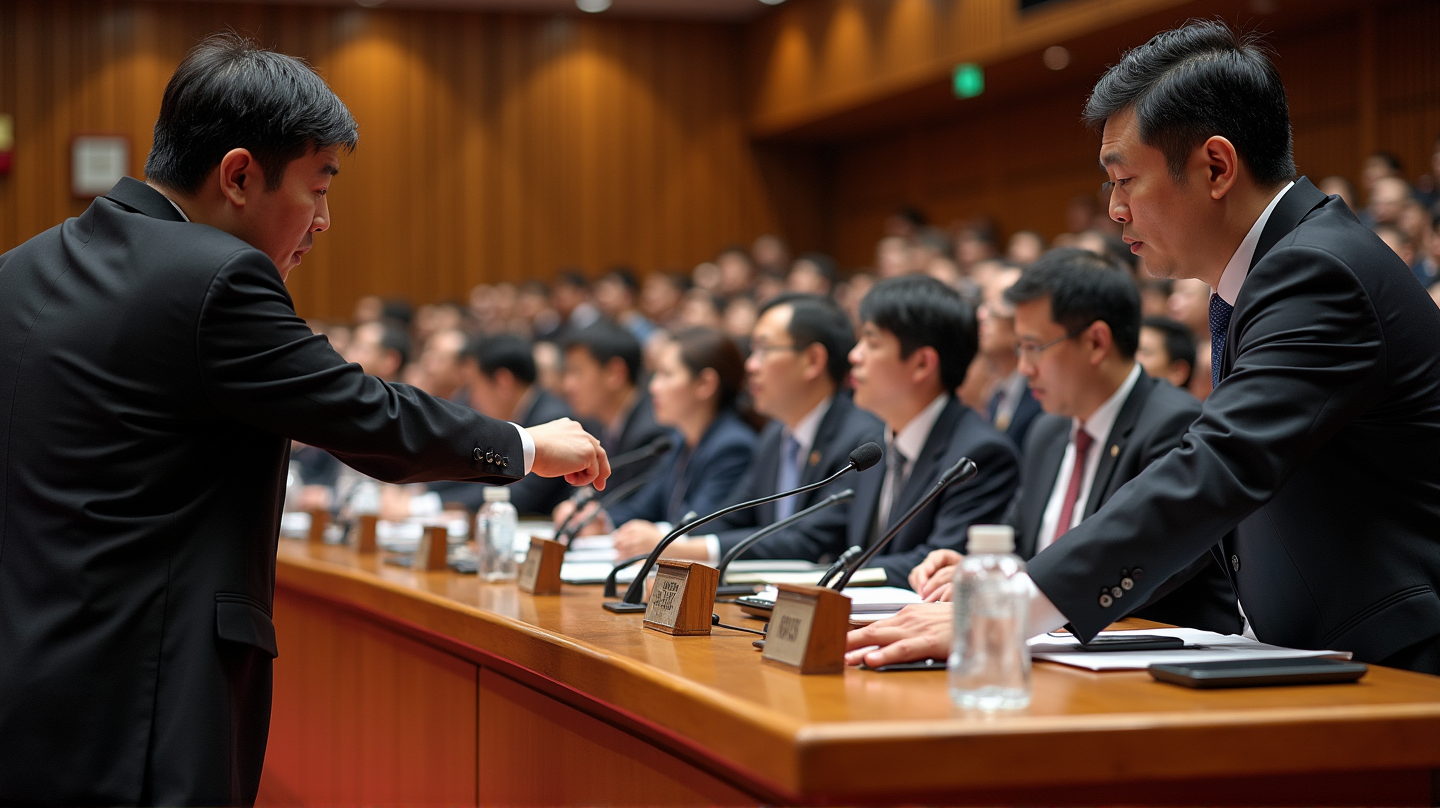A Stalwart Stance: Hong Kong Says 'No' to Same-Sex Partnerships
In a decisive move, Hong Kong's Legislative Council rejected a bill favoring same-sex partnerships, sparking a national discourse.

In a turn of events that has stirred both disappointment and fervent debate, the Hong Kong Legislative Council dismissed the proposed bill aimed at recognizing same-sex partnerships. Out of 86 members, a majority, consisting of 71 lawmakers, cast their votes against the bill, leaving only 14 supporters. This move has indeed opened a dialogue across the nation about the perception and treatment of same-sex partnerships.
A House Divided
The Council chamber was charged with emotion as magistrates took to the floor to voice their opinions. The division within the chamber was palpable, with lawmakers like Maggie Chan visibly opposing the bill, brandishing signs that pledged commitment to traditional values. This conviction was echoed by Holden Chow, who warned of the societal shifts the bill might instigate, comparing it to “opening a Pandora’s box.”
Voices of Opposition and Agreement
Junius Ho, another lawmaker, emphasized the cultural implications of family structures, pondering, “When there are only moms…or some have only dads, how do we celebrate Father’s Day and Mother’s Day?” This cultural viewpoint highlights the enduring significance of traditional marriages in Hong Kong.
Conversely, figures like Martian Liao and Eunice Yung presented a counter-narrative, stressing the inherent discrimination and limitations that the current legal framework imposes on same-sex couples. The exclusion from critical life decisions, such as medical emergencies, underscores the need for legal recognition according to them.
The Ripple Effect
While the bill faced overwhelming opposition, its rejection has spurred discussions about fairness and inclusivity in Hong Kong. Despite the defeat, advocacy groups like Hong Kong Marriage Equality continue to champion equal rights, warning that the failure to pass the bill undermines the city’s allure as a fair and inclusive society.
A Nation Watching and Waiting
Echoes of this decision are likely to resonate far beyond the legislative chambers. As stated in upi, societal evolution often contests entrenched norms, and Hong Kong finds itself at a crossroads faced with the values of yesteryear juxtaposed against contemporary ideological shifts. The country’s legislative body may have made its decision, but the conversation continues—testing the boundaries of tradition and modernity in one of Asia’s most influential cities.
In the end, while the legislation may have faltered today, the broader discourse it has incited surrounding equality persists, beckoning Hong Kong into a future that must reconcile its rich past with the inevitable changes of the present.





